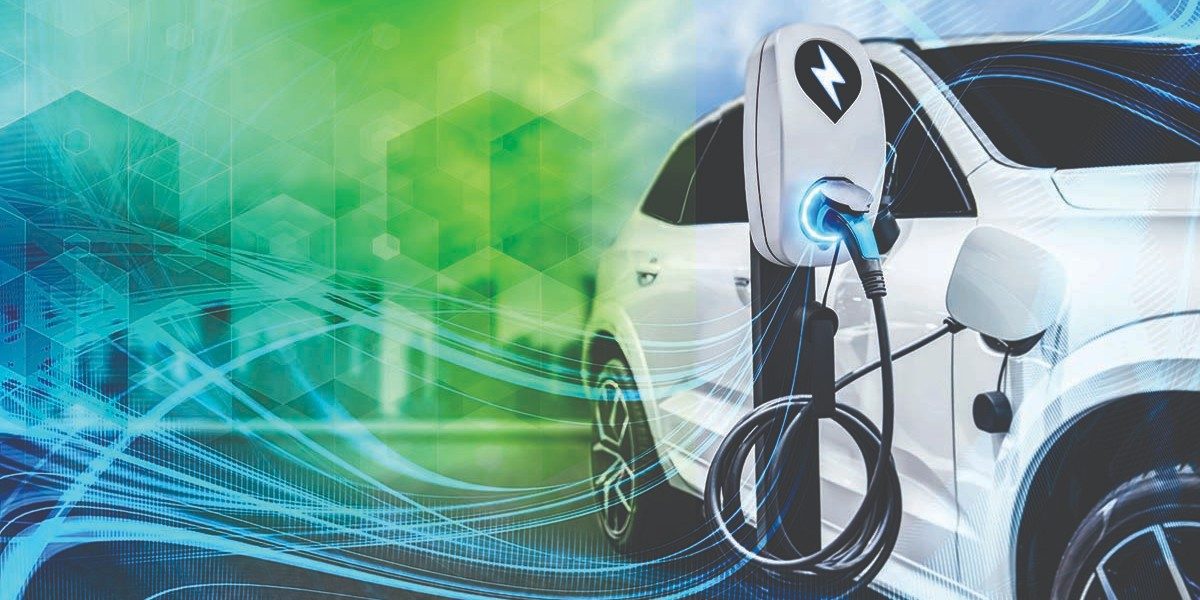
The National Automobile Dealers Association (NADA) has said they’re “all-in” on electric cars, but $30,000 price hikes and generalized dealer shenanigans about reservations in the face of ongoing inventory concerns have led some automakers to put their franchise dealer networks on notice, ultimately begging the question: if NADA leads, will the dealers follow?
If you’re unfamiliar with the NADA, they are, historically, a group that represents America’s franchise auto dealers and their interests before Congress other federal government agencies. In recent years, though, they’ve embraced more of a leadership role within the industry, offering academy courses and certifications in fixed ops and high-level management. In line with that new role, NADA issued a press release this past Tuesday announcing that its 2022 NADA Show (taking place this March in Las Vegas) would focus on electric vehicles by featuring “Super Sessions”, workshops, and a new “EV Solutions Center” showcasing products, services, and training platforms intended to, “get your dealership charged for this new opportunity.” That press release was followed almost immediately by an article on the NADA blog, published the next day, titled “EV Transition Relies on America’s Franchise Network, Says Georgia Auto Dealer.” The article highlights Georgia auto dealer, Matt Laughridge, who testified before Congress that leveraging America’s network of 16,000-plus franchise dealers – specifically those in underserved rural areas – would be critical to meet the Biden Administration’s goals of having EVs make up fully half of all new vehicle sales in the US by 2030.
“Franchised dealers are not only ‘all-in’ on selling and servicing EVs; dealers are essential to their speedy adoption by consumers,” Laughridge told the House Committee on Agriculture, testifying on behalf of the NADA and rural auto dealers during a four-hour Jan. 12th hearing entitled “Implications of Electric Vehicle Investments for Agriculture and Rural America.”
Sharp-eyed readers will note that the NADA article was published right about the time the hearing was taking place. That’s not a coincidence, it’s a message. The message is: all-in.
Coordinated efforts
What you’re seeing is a coordinated effort between NADA and its member dealers to convince Congress not to do away with franchise protection laws that prevent manufacturers (read: Tesla and Rivian) from selling cars directly to customers. Part of that effort is convincing the lawmakers who get to decide those things that:
- the dealers are the people best equipped to meet the needs of consumers, and
- the dealers are genuinely engaged (“all-in”) in the transition to EVs.
That “all-in” message really started to gain traction within NADA last year, when Mike Stanton became NADA President. Mike gets it, and he understands that dealers need to embrace EVs – but he’s not convinced that means adopting Tesla’s sales model.
“One of the great mistakes we make in assessing our progress on converting America’s fleet to electric is assuming that today’s EV buyers will look like the EV buyers of tomorrow,” explains Stanton. “This simply isn’t true.”
There’s some sense to that. Not too long ago, if you wanted to buy a Nissan LEAF or a Chevy Bolt, there might be one or two “EV specialists” at a given store who were willing to learn a bit about the cars, but they were largely on their own when it came to explaining how charging worked, what was involved in installing a home charger, what those costs were, etc. For dealers and consumers, there was a learning curve – and a time-consuming one at that.
To address that learning curve, Tesla did away with the commission sales model and worked to provide real answers to EV buyers’ most common questions. The company’s Product Specialists got paid the same whether you bought a Tesla or not, for the most part. What motivated them was different from what motivated the commission Chevy salesperson who might spend five or six hours with a customer and get paid nothing if that customer didn’t buy a car.
It’s hard to argue against the success of Tesla’s model – but equally hard to against the fact that the vast majority of car sales still happen at franchise car dealers. “What Tesla has proven is that you can sell Teslas very successfully to a certain, and pretty small, subset of our population,” Mike wrote in a blog post last July. “To date, American EV buyers are vastly different from ICE-vehicle buyers. In particular, compared to ICE buyers, EV buyers are much wealthier, much better informed about EVs.”
What does that mean for dealers as EVs become more mainstream and the EV buyer begins to more closely resemble today’s ICE-vehicle buyer?
“This is a good thing,” says Mike. “We are essentially at the doorstep of selling EVs – real, functional, non-niche EVs – to mass-market car buyers for the first time ever. And to sell effectively to mass- market buyers, you need to capitalize on what has worked for mass-market buyers for generations.”
“Clearly, consumers trust their local franchised dealers to meet their individual transportation needs,” Laughridge told Congress, noting that franchised dealers sold a total of 14.9 million new vehicles and 15 million used vehicles in 2021. “So this expansive retail network is perfectly positioned to assist customers with the transition to electric vehicles.”
Stuff you should know
Full disclosure: I come from the dealership world. I got my first dealership job at a Dodge store in 1997, and in that time have worked almost every job you can at a dealership, from lot porter to GSM. I have sold lots of cars and, more recently, motorcycles. Pre-COVID, I probably would have told you that I loved sales, and that I’d never give it up. (How things change!)
I have also met NADA’s new President, Mike Stanton, several times and in several contexts. In the last eighteen months or so, I’ve interviewed him as both a journalist and podcaster, and I’ve helped pitch him on the need for NADA to push dealers to adopt EV sales tools like Chargeway, a company founded by my podcasting buddy, Matt Teske. Matt and I were invited to speak to the assembled ATAEs (Automobile Trade Association Executives, basically state/metro-level versions of the NADA) at their national conference in Chicago last July. Along the way, I have developed a number of working relationships (and a few genuine friendships) with several ATAEs and NADA staff.

As to whether that gives me a more genuine “inside look” at what the NADA guys really think about EVs and the dealers’ need to embrace them – or makes me a NADA shill who can’t be trusted to speak objectively about dealers – is up to you.
For what it’s worth, however, I believe that my experience and relationships with the people involved make me more credible when it comes to understanding how dealers think. To that end, I’d like to submit that car dealers, by and large, are motivated by two things: fear and greed.
Right now, inventory is low, demand is high, and far too many dealers are playing games with customers by slapping ridiculous fees, markups, and “market adjusted pricing” stickers on their cars. They’re feeding that greed.
It’s short-sighted, though – and, in the long run, it’s going to hurt them. That’s what the smart people in the room – guys like Mike Stanton and Greg Remensperger, who understand what the dealers are really up against – ultimately fear.
The existential threat of direct sales
As I type this, Tesla is using its “Tesla Engage” platform to activate its legions of fans and convince New York governor, Kathy Hochul, and the state legislature to allow direct sales of its electric vehicles – and, as a consequence, Lucid and Rivian‘s electric vehicles, if not everyone else’s – in the state.
If that happened, it would undoubtedly be a hit to the dealers. That’s especially true in the long term, because of this: New York law would allow a manufacturer that, “manufactures or assembles exclusively zero-emissions vehicles,” and “has no franchised motor vehicle dealer of the same line-make,” in the state to operate direct-sales locations.
That line about “no franchised motor vehicle dealer of the same line-make” means that Chevrolet couldn’t directly sell an electric Malibu in New York, even if it produced exclusively zero-emissions vehicles. Think that through, though: how many franchise Saturn dealers do you think there are in New York? Or Mercury, or Plymouth, or Geo, for that matter?
Depending on how these state laws are written, that could be a loophole big enough to drive an all-electric Kenworth through. A Polestar or Zeekr, at least – and there are plenty of other manufacturers trying to wiggle through much tighter loopholes.
The dealers understand that, too, as evidenced in the way that they’re going after that “exclusively zero-emissions vehicles” exemption. “[Any] assertion that EVs are significantly different from ICE vehicles is simply false,” Laughridge testified. “We urge Congress to continue to preserve the states’ traditional role to license and regulate vehicle commerce by rejecting any attempts to preempt state dealer franchise laws.”
If the “bad apple” dealers out there slapping $15,000, $30,000 or even $125,000 markups (yes, really) don’t cut it out soon, they’re likely be cited as the reason Congress had to act … by doing away with dealer franchise protection laws entirely, no matter how convincing NADA’s pleas to Congress are.
Electrek’s Take
A few months ago, I had a candid conversation with Mike Stanton and Dan Ruddy (the Senior Director of Business Development at NADA) where we talked about big, national companies coming into “small town America” (my words) and sweeping away the little guys. We weren’t talking about Ford or GM or Tesla, though, we were talking about Walmart, and the way that company decimated local businesses, crushed families, and turned rural Main Streets into ghost towns throughout the 1980s and into the 2000s.
And, sure, the local car dealer probably isn’t quite as sympathetic a character as the local pharmacy or hardware store, but the fact remains that local car dealerships are often one of a town’s top employers, and make up a significant percentage of their municipal tax dollars, too. The impact that a transition to a direct sales model might have on those small towns is unclear – and, often, ignored altogether in a rush to punish dealers for their wrongs, both real and imagined (never mind the fact that the small-town pharmacy and hardware store had better profit margins than new car dealers).
As such, I believe that the NADA leadership is truly doing what their member dealers want them to do: get a high-level view of the industry and economy as-a-whole, and work in service of the best interests of their member dealers. I know from experience that NADA staff and the ATAEs in several states have invested hundreds of hours into solving for the pain points their dealers experience when it comes to selling EVs, and they’ve put the products and programs that they believe have the best shot of easing those pain points front and center at their 2022 NADA Show.
They’ve led the way. It’s up to the horses dealers now.
Sources | Images: NADA.
FTC: We use income earning auto affiliate links. More.





Comments